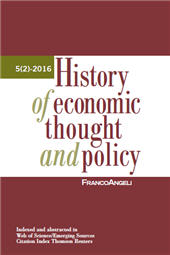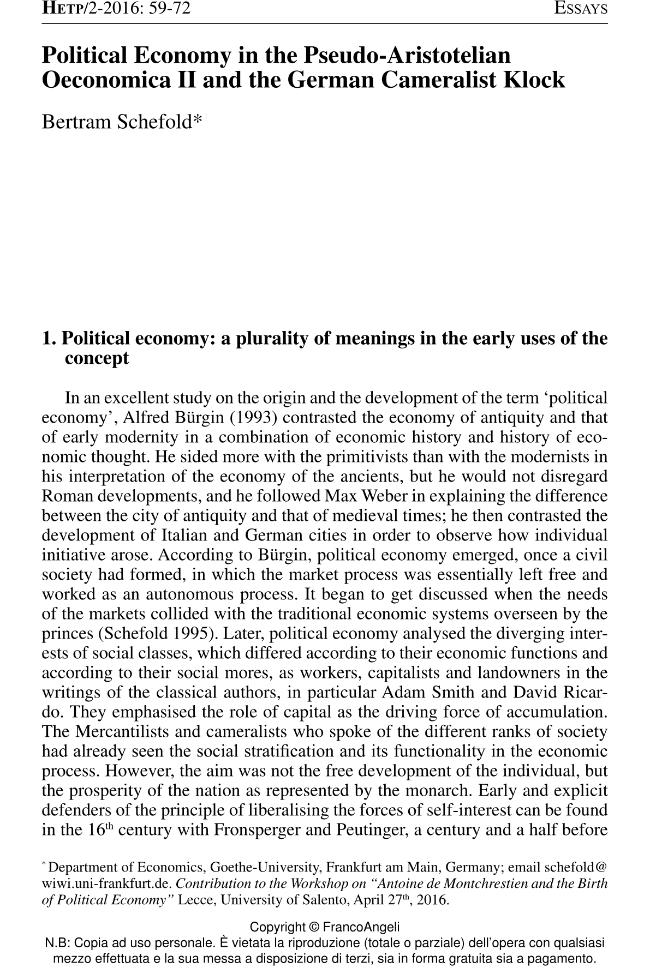Political economy in the Pseudo-Aristotelian Oeconomica II and the German cameralist Klock
59-72 p.
Montchrétien was decidedly mercantilist. He praises the ancients, their honour and their self-discipline, but he notes, like Serra, that there was no concept of Political Economy in Antiquity. The words, however, appear for the first time in the pseudoaristotelian Oeconomica II, where the householding by a king, the householding of the governor of a province, the administration of a city (polis) and the household of a private citizen are distinguished; the term applies to the financing of a city economy. The book contains a multitude of prescriptions of how to finance a city by means of varying forms of taxation, gifts, forced loans and by means of manipulating the currency. Especially the latter schemes are of extreme interest for the historian of economic thought, as they reveal a remarkable understanding of metallist and nominalist conception of money. The paper tries to explain the contexts and then goes on to compare these doctrines with cameralism, using the comments published in 1651 by the German came
ralist Klock on Oeconomica II. He treats the proposals as if they were made by contemporaries, assessing them from practical and moral points of view in a way that suggests a parallelism of institutions and ideas. [Publisher's Text].
Forma parte de
History of Economic Thought and Policy : 2, 2016-
Artículos del mismo número (disponibles individualmente)
-
Información
Código DOI: 10.3280/SPE2016-002004
ISSN: 2280-188X
KEYWORDS
- Mercantilism, cameralism, economics of Antiquity, public finance



